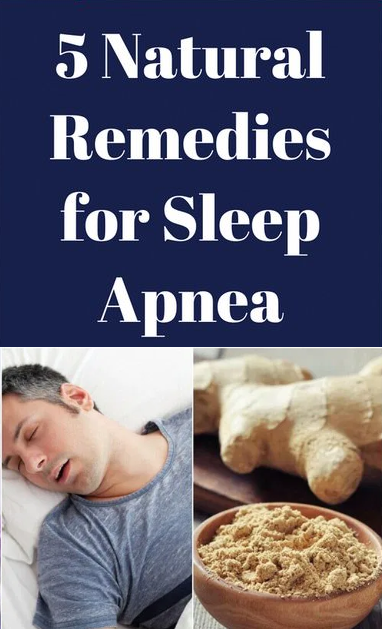Sleep Apnea is a condition that leads to poor sleep quality because of uncontrollable breathing pauses, taking shallow breaths and suddenly waking up startled. A person with this sleeping condition can repeatedly stop breathing for up to 30 times per hour without the person being aware of it at all. As a matter of fact, people having this condition think that they actually get a good night sleep!
This is scary and alarming because it is more than just heavy snoring. It is a serious medical condition that is even potentially life-threatening. It can decrease the quality of life and lead to numerous negative symptoms.
Signs and Symptoms of Sleep Apnea
- Loud snoring, particularly if it is punctuated by silence (sudden pause in all sound and breathing)
- “Breathing cessation episodes” or the sudden waking up and the feeling of being startled due to loss of breath
- Feeling tired or drowsy even after getting a full night sleep
- Experiencing hypoapnea or the pausing in breathing which happens more than 4 to 5 times every hour. In most severe case, hypoapnea can happen every minute each night
- Shortness of breath when waking up
- Waking up with bad breath, sore throat, dry mouth, and headaches
- Frequent urination and night sweating
- Experiencing brain fog, poor memory, and trouble in concentrating during daytime
- Struggling with other sleeping condition such as insomnia
- Feels irritable, depressed and anxious than usual due to lack of enough sleep
1. Honey
Honey’s inflammatory properties can be useful for treating apnea. It helps reduce the swelling around the throat which can obstruct airways. Additionally, honey can lubricate the throat in order to prevent snoring which is the most common symptom of apnea.
Moreover, honey promotes relaxation and good sleep. It also helps prevent obesity and maintain a healthy body weight which can be beneficial for treating apnea. This is because losing weight is an important step to prevent sleep apnea.
Before going to bed drink a glass of warm water with 1 tablespoon of raw honey.
You can also sip a glass of warm water with a teaspoon of black pepper powder and honey before going to bed every night.
2. Adjust your sleeping position
Elevating your head when you sleep can help lower snoring. Sleeping on your back has been shown to make snoring and other sleep apnea symptoms worse so you might want to avoid that. It is because this sleeping position presses your palate tissue and tongue against the back of your throat.
The University of Maryland Medical Center stated that when you sleep on your side with a pillow that is slightly large to keep your head somewhat raised is the best sleeping position in order to lessen the symptoms of sleep apnea.
3. Lavender
It is another well-known remedy to help treat symptoms of sleep apnea. Lavender has a sedative, soothing and relaxing nature that stops muscle obstruction in your throat and helps you enjoy a good night sleep.
- Before going to bed simply add drops of lavender into the diffuser.
- In case you do not have any diffuser at home, use a tissue, put drops of lavender oil and put it under the pillow.
- Inhale a steam of warm water with a few drops of lavender oil before bedtime.
- Also, you can drink a lavender tea 2-3 times a day. In a cup of hot water, simply put two teaspoons of dried lavender buds. Cover the cup and steep. After 5-10 minutes strain the water and add honey if you want.
4. Humidify your Room
Sleeping with a humidifier inside the room can help decrease congestion snoring and provides clearer breathing. This is because humidifier can help drain your sinuses and encourage more air to move through your airways.
If you do not have any humidifier, rubbing essential oils like eucalyptus on your chest before going to sleep can help in opening your airways naturally and soothe stuffy throat or nose.
5. Chamomile
Chamomile is another great herbal treatment for sleep apnea. This herb contains compounds that can help relax nerves and muscles, and cause sedation that can promote sleepiness. Moreover, it has an anti-inflammatory effect which helps in ridding obstruction in your airways and causes snoring.
- Drink a chamomile tea 1 hour before bedtime every day. In a cup of hot water, simply add 2 teaspoons of dried chamomile, cover and steep for 5-10 minutes. Strain and add a pinch of cinnamon powder and little honey if you want.
- You can also prepare a chamomile oil to massage your neck with. Simply mix 2 parts of olive oil with one part chamomile oil.
If you find that these remedies are not working, you might want to try something more comprehensive. Check out Sleep Apnea No More, which focuses on getting sleep apnea uses all natural ways.
